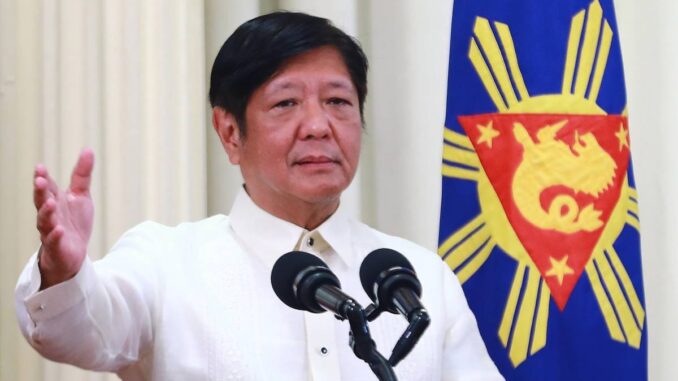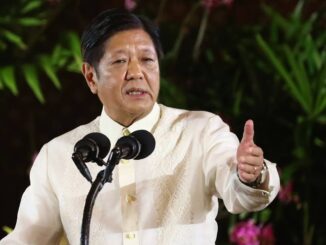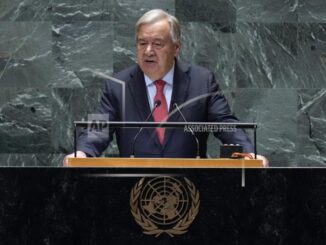
(UPDATES) PRESIDENT Ferdinand Marcos Jr. is skipping this year’s United Nations General Assembly (UNGA) in New York due “to pressing domestic concerns,” Malacañang said Thursday.
Presidential Communications Secretary Cesar Chavez said Foreign Affairs Secretary Enrique Manalo would instead lead the Philippine delegation to the UNGA on Marcos’ behalf.
“Due to pressing domestic concerns, which require immediate attention, the President is unable to attend this year’s United Nations General Assembly in New York this September,” Chavez told The Manila Times when asked why Marcos decided to skip the UNGA for the second time.
President Ferdinand Marcos Jr.
Chavez did not provide further details but he said Manalo is capable of expressing the country’s statements on global issues in the annual meeting.
“[Manalo] will articulate the country’s responses to global challenges which we assert should be resolved within the framework of peace and cooperation enshrined in the UN Charter,” he said.
The Philippines is one of the original 51 charter members that created the United Nations in 1945.
This is not the first time Marcos skipped the assembly. He also did not attend the 78th session of the UNGA last year and was represented by Manalo.
The President only attended the UNGA in 2022, his first time returning to New York in 25 years.
Philippine Ambassador to the United States Jose Manuel Romualdez, in a separate statement, said that the President would skip the UNGA as he “was limiting his trips up to the end of the year.”
Reports said that the Philippines was among the 20 countries that plan to talk with China in the upcoming summit at the sidelines of UNGA in New York City on September 22.
Tensions between China and the Philippines have continued to escalate as both sides traded accusations over a series of incidents in the disputed waters.
China claims almost the entire South China Sea, a conduit for more than $3 trillion in annual ship commerce. Its territorial claims overlap with those of the Philippines, Vietnam, Malaysia and Brunei.
China’s claims are based on the South China Sea’s “nine-dash line” that has been invalidated by a 2016 decision at the Permanent Court of Arbitration.
The same 2016 Hague court decision also declared the Panatag Shoal a common fishing ground for countries and outlawed China’s aggression against Philippine vessels, including preventing Filipino fishermen from accessing the Scarborough (Panatag) Shoal.
The Hague ruling also upheld that Panganiban (Mischief) Reef, Ayungin (Second Thomas) Shoal, and Recto (Reed) Bank are all within the Philippines’ exclusive economic zone as provided by the United Nations Convention on the Law of the Sea.
China, however, refuses to recognize the Hague ruling to this day.





Be the first to comment